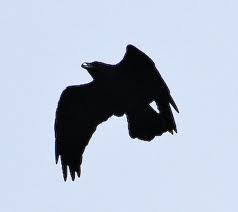1828
The Foriegn Quarterly
"Scandinavian Mythology"
Excerpts from Hrafnagaldur Óðinns in
History of Denmark, Sweden and Norway
by Samuel Astley Dunham
|
In the Scandinavian, as in the
Grecian mythology, the sun and the moon, or rather their
regent-deities, are regarded as brother and sister*, Freya,
the sister of Freyr, is, therefore, the moon-goddess;* she
is also the goddess of love, uniting in herself the
properties of the Artemis and Aphrodite of the Greeks. She
presides over the heavenly region called Folkvang. She is
next in rank to Frigga among the Asynier, and when she goes
to the battles of men, for some unexplained reason, one half
of the slain fall to her and the other to Odin. This goddess
rides in a chariot drawn by two cats. By her husband
Odur—who frequently leaves her at which she weeps golden
tears—she had a daughter named Hnossa so bright that all
bright things, (Hnossir), are so named from her. There are
few adventures of Freya alluded to; the extreme desire of
the giants to obtain her in marriage has been already
noticed—they would no doubt gladly obtain the moon to illume
their gloomy abodes, so far removed from the "sun and
summer-shade."
Nott (Night) comes through the skies mounted on her horse, Hrimfaxi, (Frost-mane,) or in a chariot drawn by two horses. The drops that fall from the bits of her bridles are the dew drops that at morning lie glittering on the meads. Daggr (Day) also rides or drives with one or two horses, one of which is named Skinfaxi (Bright-mane), whose mane fills the air with light. In Odin's Raven-Song we meet the following highly poetical description of the break of day.
Like earth, heaven enjoyed the blessings of song and poetry. The silver-bearded Braga charmed the Aser with his eloquent strains and the accords of his harp. His wife, the beautiful Idunna, was the possessor of the fragrant apples by whose taste the departing youth of the gods was stayed. The carrying off of Idunna by the giant Thiasse, the danger the gods thereby rail of sinking into premature decrepitude, with her recovery by the stratagems of Loki, who had been the original means of betraying her into the power of the giant, form one of the most interesting narratives of the Edda of Snorro. By Idunna Mr. Magnusen would understand the genial spring which renews the youth of all nature, pouring forth verdure, flowers, and fruit beneath the tepid gales, which sport through its placid skies. As joy and harmony, the song of birds, the voice of man, and cry of animals, accompany this inspiring season, Idunna is feigned to be wedded to Braga the god of song and poetry. The giant Thiasse is the winter, Idunna escapes from him, in the shape of a swallow, the bird of spring, conducted by Loki in the form of a hawk. Thiasse, pursuing as an eagle, rushes into the flames kindled by the gods, and is there slain by them—that is, Winter is destroyed by the heat attending the entrance of spring. Certainly a most beautiful mythos, if our author's exposition be right. Loki is one of the most celebrated of the gods, but his origin and character are involved in much obscurity. His name signifies flame, and there can be hardly a doubt of his having been a personification, or the demon, of fire. Hence his deeds are sometimes good, sometimes evil. There being two or more persons of this name, no small confusion has arisen from confounding their attributes and actions, and it is not perhaps now possible to assign to each of them his own. The ancient Edda endeavours to account for the change of character in Asa Loki by saying that he lost his innocence by eating the half-roasted heart of a wicked woman, whence he became wicked, and the father of all the monsters of earth. The resemblance between him and the Christian Satan is evident, and was early perceived in the North. In Norway the devil is at this day called Lok'e, and numerous evil effects are still throughout Scandinavia and Iceland ascribed to this ancient demon. |
